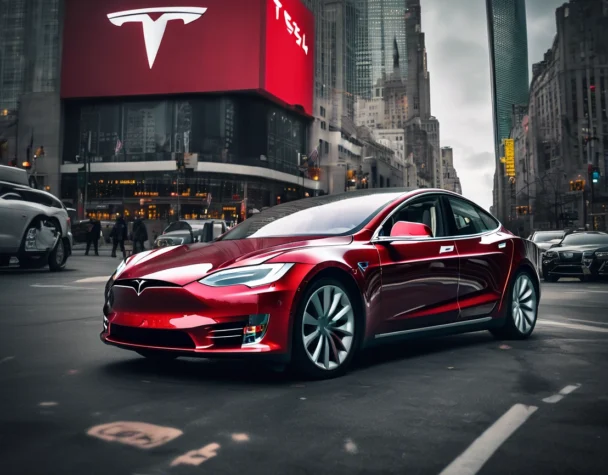
Tesla’s Stock Plummets Amid Sales Decline and Political Controversy
Tue, March 11, 2025Tesla Faces a Sharp Decline in Stock Value
On Monday, March 10, 2025, Tesla Inc. (TSLA) experienced a steep drop in its stock price, closing at $222.15—a staggering 15.4% decline from the previous trading day. This downturn wiped out the gains Tesla had made since the U.S. presidential election in November 2024, signaling deep concerns among investors.
Key Factors Behind Tesla’s Stock Collapse
1. Trade Policies and Tariffs Impacting Growth
The Biden administration’s implementation of strict trade tariffs on key partners such as China, Canada, and Mexico has raised fears of economic instability. Tesla, with its extensive global supply chain, faces increasing production costs and potential barriers to international markets. This uncertainty has contributed to investor anxiety and the subsequent stock dip.
2. Declining Sales and Market Share
For the first time in years, Tesla reported a drop in annual global sales. Significant declines were observed in its major markets—California, Europe, and China—leading analysts to predict a further 5% decrease in U.S. vehicle deliveries in 2025. This downturn raises questions about Tesla’s ability to maintain its growth trajectory in a fiercely competitive electric vehicle (EV) market.
3. Political Controversy and Consumer Backlash
Elon Musk’s highly publicized support for President Trump, including a $270 million campaign donation, has sparked controversy among Tesla’s traditionally environmentally conscious and progressive customer base. This political association has led to consumer protests and contributed to the decline in Tesla’s brand perception, further impacting sales and stock performance.
4. Rising Competition in the EV Market
Legacy automakers and new players continue to flood the EV market with competitive offerings, challenging Tesla’s dominance. With companies like BYD, Rivian, and traditional automakers such as Ford and GM ramping up their EV production, Tesla is facing increasing pressure to sustain its market share.
5. Operational Hurdles and Model Delays
Production bottlenecks, inventory management issues, and delays in the rollout of new Tesla models have created uncertainty around the company’s long-term outlook. With high expectations for innovation, any delay in Tesla’s next-generation vehicles amplifies investor concerns.
The Road Ahead for Tesla
While Tesla remains a dominant force in the EV sector, recent events highlight the vulnerabilities in its business model. The company must navigate geopolitical risks, regain consumer trust, and streamline its operations to reassure investors. Whether Tesla can recover from this sharp decline will depend on its strategic decisions in the coming months.

